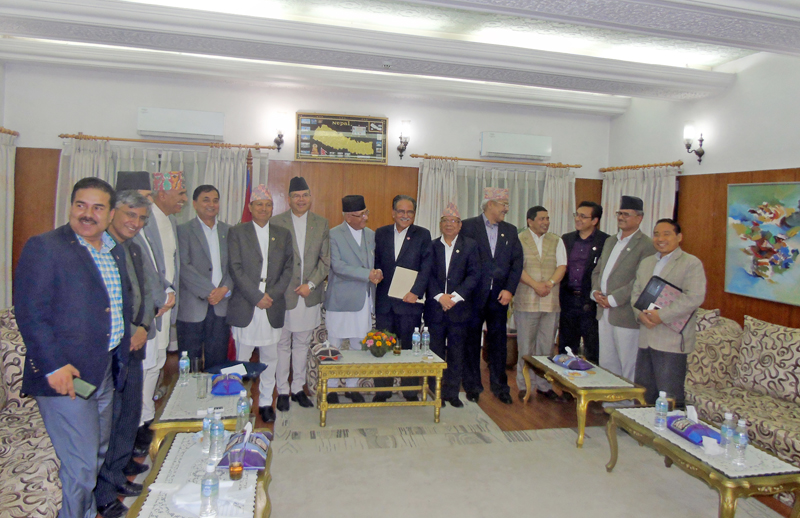International bodies slam nine-point deal
Kathmandu, May 13
International Commission of Jurists, Human Rights Watch and Amnesty International today said Nepal’s leading political parties should not bargain away justice for victims of serious human rights abuses as part of an agreement to form a new coalition government.
They said the nine-point agreement signed between the CPN-UML and the Unified CPN-Maoist threatened to entrench impunity for those who planned and carried out killings, enforced disappearances, torture and other crimes during insurgency, just as the country’s long delayed transitional justice process was finally about to get under way.
“Provision 7, which directs the authorities to withdraw all wartime cases before the courts and to provide amnesty to alleged perpetrators, is particularly problematic,” the rights bodies said in a joint press release issued from New York today.
Sam Zarifi, Asia-Pacific Director at the ICJ, said the deal between the ruling parties was extremely damaging to the credibility of an already deeply politicised and flawed transitional justice process in the eyes of victims.
“Moreover, it flies in the face of Nepal’s international human rights obligations and the ruling of its Supreme Court by trying to wash away the crimes of the conflict by attempting to co-opt pending criminal cases and provide blanket amnesty to the alleged perpetrators,” he added.
The release stated that Nepal’s Supreme Court had, in several instances, reaffirmed the principle under international law that amnesty was impermissible for serious international crimes; however, Nepali authorities had consistently ignored orders from the country’s highest court.
The rights bodies said Nepal had an obligation to investigate and prosecute crimes under international law, including torture and other ill-treatment, enforced disappearance, extra-judicial executions, war crimes and crimes against humanity.
“The political deal by the ruling parties to grant amnesty to those responsible for conflict-era human rights abuses is a callous attempt to disregard Nepal’s international treaty obligations by violating victims’ right to an effective remedy,” said Brad Adams, Asia Director at Human Right Watch.
The applicability of an international obligation under Nepali law was reaffirmed by the Supreme Court in its 2015 decision in the Suman Adhikari case, striking down provisions of the Investigation of Disappeared Persons, Truth and Reconciliation Commission Act, that it ruled were inconsistent with international law and ordering the government to amend the TRC Act, read the release.
The Supreme Court, the rights bodies said, ruled in the same decision that criminal cases already before the judiciary could not be transferred to the two commissions, confirming that the judiciary, and not the commissions, had the authority to determine the criminality of conflict-era human rights violations.






